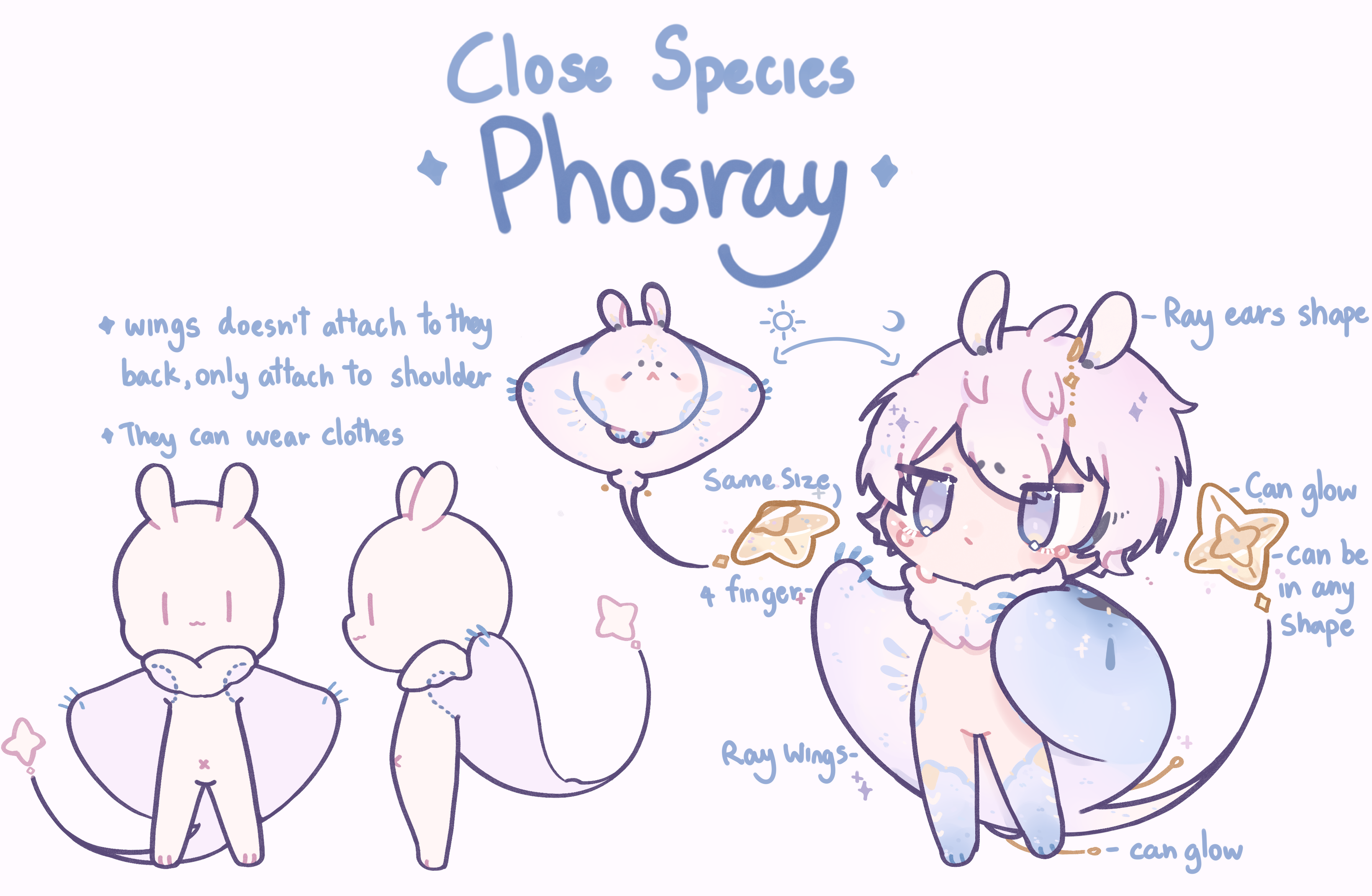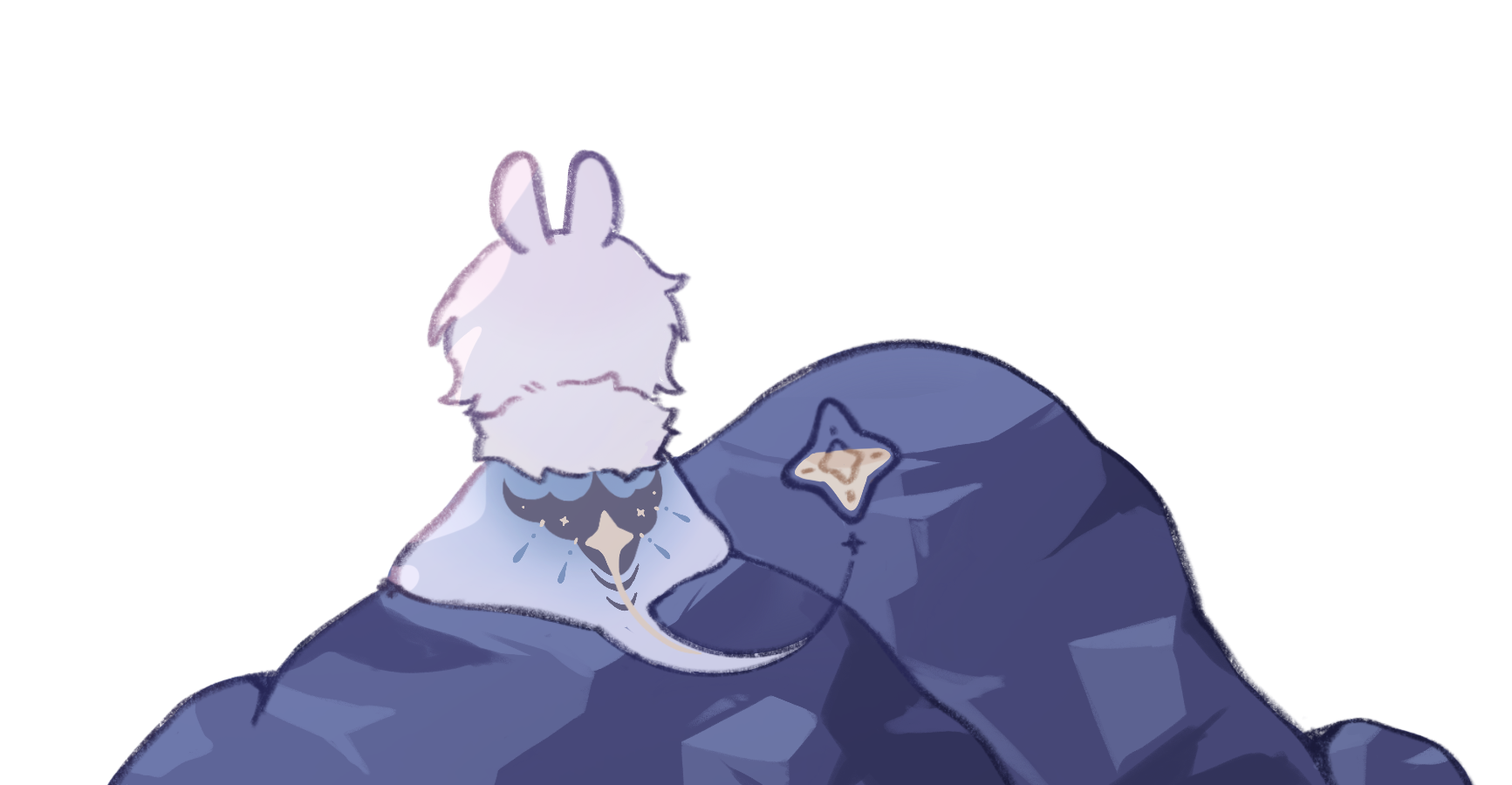
Overall
The Phosray has two forms of body. Due to the amount of light their bodies absorb during the day, they are usually referred to as Drifted Form and Bloom Form. A phosray has distinctive features like ray ears on top of its head and ray wings attached to its arms.
At the end of its tail is a glass filled with water, which is as crucial to its survival as its life itself.
PHOSRAY'S TAIL
Phosray's tail can be freely designed. Its tail must be thin and not too big or fat. If you wish to add another pair of fins, make sure that they are in the tail area or else you will have to use complex wings as special traits.
These are examples of allowed fin design and special traits, complex wings.
 |
PHOSRAY'S TAILPhosray's tail can be freely designed. Its tail must be thin and not too big or fat. If you wish to add another pair of fins, make sure that they are in the tail area or else you will have to use complex wings as special traits. |
GlassLike bioluminescent plankton, the seawater at the tip of the tail can glow. When designing, ensure that glass is used as a container for water, so it remains clearly visible.
|
Drifted/bloom formA similar color scheme, pattern, and design should be used for both drifted and bloom forms. As an example, if the drifted form has circle marks on its right ear, the bloom form also needs to have the same marks.
|

